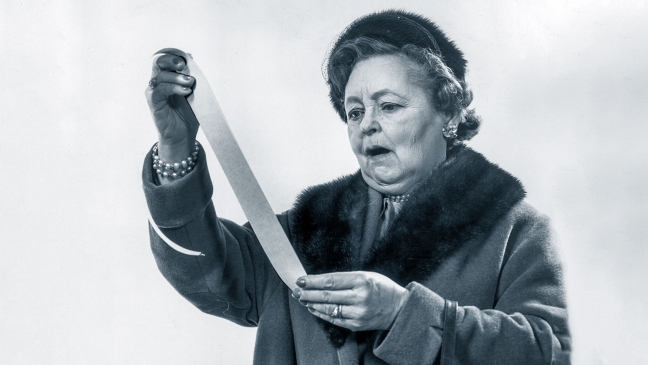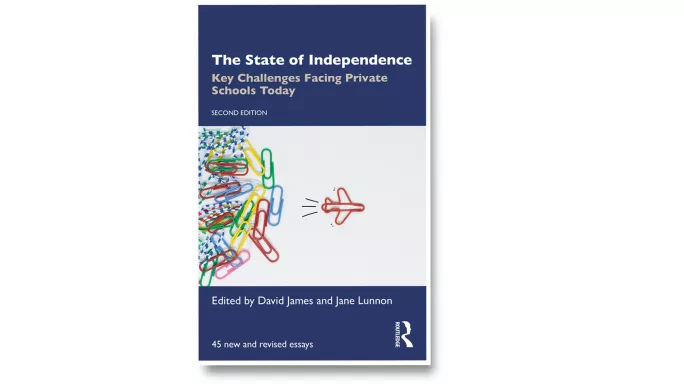One of the most extraordinary statistics in British education is that in 1960, 7 per cent of children went to independent schools and now 7 per cent of children go to independent schools.
Over that period the country has got vastly wealthier. In the 1960s, 70 per cent of people were in working-class jobs; it is now a shrinking minority. Professional roles in, for example, accountancy or public sector management have increased massively.
Whole new sectors - like management consultancy or computer science - have come into being. Naturally, one result of this prosperity has been huge growth in the consumption of luxury goods.
From sports cars to paintings, from second homes to tropical holidays, sales are on a completely different scale. And yet for the ultimate luxury good, private education, the market hasn’t grown at all.
Inflation wipes out access
There are a number of reasons for this, including improvement in the quality of state education, but the biggest reason by far is year-on-year above-inflation fee increases.
Sectors deal with increasing demand in two ways, by increasing availability or putting up the price, and private schools have emphatically done the latter. Somewhat ironically, this is largely a function of the sector being mostly charitable.
With no profit motive, there is no reason to grow, but there is a reason to maintain elite status and get access to the best-prepared children and the richest parents. So, you end up with an arms race on pupil/teacher ratios and facilities, for a static but ever wealthier customer base.
The political implications of this are very significant.
A few decades ago, most of the establishments used private schools. It was the norm for politicians (especially Tory ones); newspaper editorial teams and opinion columnists; professors; senior civil servants and so on, to use the independent sector to educate their own children.
Now, it is largely the province of bankers, commercial lawyers and business executives, increasingly not from Britain, who have money but tend to participate less in the formation of elite opinion. My parents, as senior academics, sent me and my sister private.
Since then, the fees at our schools have gone up more than twice as much as the equivalent salaries. I earn a similar amount to what my parents did then and there is simply no way I would spend that proportion of my post-tax income on schools.
My kids, and the kids of pretty much everyone in my social circle, use state schools. The establishment using the state sector has two consequences.
Little to gain from protecting the private sector
First, there are far fewer people invested in offering political protection to the private sector.
It is just a matter of time before a government eventually removes tax breaks, and VAT on fees is not impossible, given the growing need for income to pay for squeezed public services.
If and when these things happen it’s hard to see where the sector’s defenders are going to come from.
Secondly, there are now far higher levels of elite establishment satisfaction with the state sector, as people tend to quite like their children’s schools.
Stereotypical disdain of ‘bog-standard’ comprehensives relied heavily on ignorance. Policies like the Thatcher Government’s ‘assisted places scheme’ (APS) whereby a small percentage of families were given financial support to ‘escape’ the state system are unimaginable now, because they originate from the belief that state education is intrinsically inadequate.
As recently as the 2000s, vouchers that could be used in state and private schools were still touted as Tory party policy; it’s not part of the conversation anymore.
Even the romantic Andrew Adonis/Michael Gove vision of independent schools inserting their “DNA” into the state system via partnerships and academy sponsorship has died.
With a few exceptions, the independent sector’s forays into more advanced partnership have failed, as the job state schools have to do is just very different. None of this represents an immediate crisis for the sector. It isn’t shrinking in size, and even if tax breaks were removed, the financial impact would be limited.
A shrinking customer base
Existing schools will continue to be able to operate as a luxury market, with special appeal to foreign families searching for traditional Britain, like educational Ritz hotels.
But it is hard to see how private schools could recapture the hold they had over the establishment or the political benefits that gave them. And it’s hard to see them ever being asked to take on a wider role in the system again.
For many years, political analyses of the sector have focused on the risk that left-wing governments might seek to abolish the sector or take some other highly punitive action.
Turns out they really didn’t need to; the sector has priced itself into irrelevance.
Sam Freedman is a senior fellow at the Institute of Government and a former senior policy adviser at the Department for Education.
The above is an edited extract from The State of Independence, second edition, published by Routledge. Tes readers can receive 20 per cent off by using the code TES, valid until 31 March 2023






